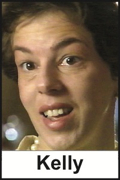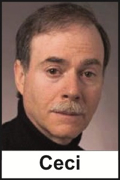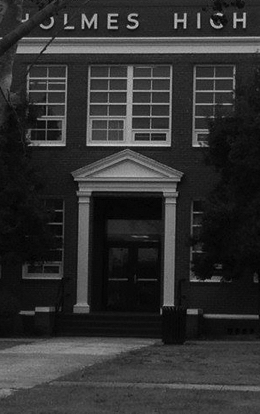Rascals case in brief
In the beginning, in 1989, more than 90 children at the Little Rascals Day Care Center in Edenton, North Carolina, accused a total of 20 adults with 429 instances of sexual abuse over a three-year period. It may have all begun with one parent’s complaint about punishment given her child.
Among the alleged perpetrators: the sheriff and mayor. But prosecutors would charge only Robin Byrum, Darlene Harris, Elizabeth “Betsy” Kelly, Robert “Bob” Kelly, Willard Scott Privott, Shelley Stone and Dawn Wilson – the Edenton 7.
Along with sodomy and beatings, allegations included a baby killed with a handgun, a child being hung upside down from a tree and being set on fire and countless other fantastic incidents involving spaceships, hot air balloons, pirate ships and trained sharks.
By the time prosecutors dropped the last charges in 1997, Little Rascals had become North Carolina’s longest and most costly criminal trial. Prosecutors kept defendants jailed in hopes at least one would turn against their supposed co-conspirators. Remarkably, none did. Another shameful record: Five defendants had to wait longer to face their accusers in court than anyone else in North Carolina history.
Between 1991 and 1997, Ofra Bikel produced three extraordinary episodes on the Little Rascals case for the PBS series “Frontline.” Although “Innocence Lost” did not deter prosecutors, it exposed their tactics and fostered nationwide skepticism and dismay.
With each passing year, the absurdity of the Little Rascals charges has become more obvious. But no admission of error has ever come from prosecutors, police, interviewers or parents. This site is devoted to the issues raised by this case.
On Facebook
Click for earlier Facebook posts archived on this site
Click to go to
Today’s random selection from the Little Rascals Day Care archives….
Click for earlier Facebook posts archived on this site
Click to go to
Today’s random selection from the Little Rascals Day Care archives….
‘The most fundamental questions of fairness’
July 5, 2013
“RALEIGH – During a hearing at the state Court of Appeals, Chief Judge Gerald Arnold repeatedly asked a state prosecutor about the fairness of testimony by (Bob) Kelly’s former attorney in Edenton. Arnold said the attorney had, in effect, testified that he believed in Kelly’s innocence until he learned his child had been abused.
“ ‘How can you argue that it was not extremely prejudicial?’ the judge asked.
“Associate Attorney General Ellen Scouten argued that Chris Bean did not divulge confidential information and did not violate an attorney-client relationship with Kelly. She said Bean testified as a parent and a crime victim.
“Arnold said Bean, now a district court judge, had gone beyond describing what he had seen and witnessed as a parent.
“ ‘This boils down to the most fundamental questions of fairness,’ Arnold said. ‘When you have an attorney testifying that “I was Mr. Kelly’s attorney and I believed in him very strongly until I learned the truth, that is to say that he’s guilty, and then I was shattered.” How can there be more prejudicial, stronger evidence put before a jury than to have a former attorney, the defendant’s attorney say that?’
“Scouten said that because the defense had contended that accusers in Edenton were hysterical people on a witch hunt it was fair to allow the state to show the type of people involved.
“ ‘Mr. Bean and his wife were reputable, respected thoughtful, educated people – not the type of people that would be swept up by community hysteria,’ she said.”
– From “Appeal of 2 defendants in Little Rascals case draws a crowd” in the News & Observer (Jan. 10, 1995)
Given this line of questioning, it came as no great surprise when four months later the Court of Appeals overturned the convictions of both Kelly and Dawn Wilson.
Bean’s unfettered opinionating was only one of three major defects cited by the court, the others being the withholding of exculpatory evidence by prosecutors and the testimony of parents as expert witnesses.
The prosecution got off light – the brief filed by appellate defender Mark Montgomery claimed no fewer than 222 potentially reversible errors.
Betsy Kelly: Still innocent, but no longer believing
 Jan. 7, 2013
Jan. 7, 2013
““When I began this journey almost five years ago, I was a very strong, very optimistic, very believing and very innocent person. As I stand here today, I have become very tired, very disillusioned, very unbelieving but very much the innocent woman I was.
“When I lost my home, my job and business, my worldly possessions – then my husband and friend – I realized that what I had believed in and held onto as truth and justice no longer existed. But with the love and concern and total support of my family, my attorneys and very dear friends, I have come to realize that although prison is some place I do not want to return to, there are many worse prisons to endure out in the free world.
“I can now, for the first time in five years, look my precious daughter in the eyes and tell her that this will all be over soon and that (the) life that we have dreamed about but never dared to believe in is going to come true.
“No one in this courtroom can truly understand why I chose this pathway at this time – but I am at peace with the only true person that matters.”
– From Betsy Kelly’s statement to the court (Jan. 21, 1994), as she entered a no contest plea to 30 counts of child molestation
Leading questions, not spontaneity, marked interviews
 May 4, 2012
May 4, 2012
“Written reports that contain statements such as ‘The child said that Mr. Bob told them secrets’ are meaningless.
“We need to know whether this was a spontaneous remark, whether this was prompted by an open-ended question (e.g., “What did Mr. Bob tell you?”), or whether this is merely the interviewer’s memory of the gist of a conversation in which the interviewer asked, ‘Did Mr. Bob ask you to keep secrets?’ and the child reluctantly may have replied, ‘Yes.’
“Some summaries of the interviews are written in such a way as to make one believe that children made spontaneous and detailed statements about sexual abuse. However in the few instances where we have transcripts of other interviews, it is clear that the child only responded ‘yes’ or ‘no’ to a barrage of leading questions.”
– From “Jeopardy in the Courtroom: A Scientific Analysis of Children’s
Testimony” by Stephen J. Ceci and Maggie Bruck (1995)
Betsy Kelly barred from reunion (but still got T-shirt!)
 June 28, 2015
June 28, 2015
“Today in Edenton members of John A. Holmes High School’s Class of ’73 will walk across a stage in caps and gowns, receive diplomas and turn tassels on their mortar boards – 20 years late.
“Their graduation ceremony was cancelled abruptly in 1973. A decision not to renew the contract of a black band leader had caused racial unrest, and school officials feared a disruption…. Diplomas were mailed to the 142 graduates….
“One member who doesn’t plan to attend is Elizabeth Twiddy Kelly…. A condition of her ($400,000) bond prohibits her from going to her hometown.
“ ‘There are a lot of them I would love to just touch base with, but that will have to happen another year,’ Mrs. Kelly said.
“The class committee plans to send her a class T-shirt and a letter.”
– From “Class of ’73” by the Associated Press (June 12, 1993)
Seven months later Betsy Kelly pleaded no contest to charges of child sex abuse, while maintaining her innocence, and accepted a sentence of seven years in prison. She was paroled in November 1994.









0 CommentsComment on Facebook